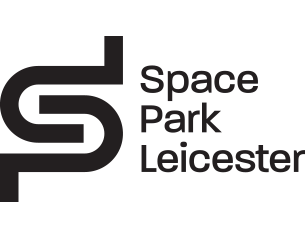University experts welcome £19.5 million injection for development of space technologies
Scientists at the University of Leicester have welcomed the Government’s decision to inject millions of pounds into developing space technologies in the city, following the award of a £19.5 million grant.
The University supported Leicester City Council’s bid for a share of the Government’s Levelling Up Fund, which is designed to finance long-term, significant low-carbon capital projects which create jobs, encourage new investment and enable businesses to grow.

The injection of cash will enable two related projects in and around Pioneer Park and Exploration Drive, off Abbey Lane including the development of land close to Space Park Leicester, providing an opportunity to expand the emerging space cluster in Leicester with high-quality production facilities for space and satellite technology organisations.
William Wells, Head of Research & Enterprise Partnerships at the University of Leicester, said: “It is fantastic news that Leicester City Council’s bid for funding for the Pioneer Park scheme has been successful and we were delighted to have provided our assistance.
“Leicester has been involved in space research for more than 60 years and with the recent opening of Space Park Leicester and now the further development of Pioneer Park, Leicester is well and truly on the map as a key place to be for forward-thinking, high-end technology and space science businesses.”
Already a base for Dock workspaces for high-tech industries, the money will be spent on the development of two more Dock-style buildings as well as nine high-quality manufacturing spaces totalling 4,000 square metres.
Plans also include the transformation of the vacant Ian Marlow Centre council depot site in nearby Blackbird Road into around 3,000 square metres of light industrial spaces to provide much-needed small units.
Leicester City Mayor Peter Soulsby commented: “I’m delighted that the city’s bid for funding for the Pioneer Park scheme has been successful. The area is also home to some very forward-thinking, high-end technology and space science businesses, so being able to retain and develop that sector is a key part of the city’s post-Covid economic recovery.
“Schemes such as this will ensure there are opportunities for skilled employment, meaning we retain skilled workers, develop high-manufacturing facilities and build on our reputation as a place which has much to offer businesses, and with good transport links to the rest of the region.”
All the projects are expected to be completed by spring 2024.
In total, the city received £45.5million from the Levelling Up Fund, £8.5million of which will be used to finance a scheme to redevelop the former city council premises at Pilot House, in King Street, into a home for start-up and growing creative businesses, bringing the cluster of heritage buildings back into use as part of the wider regeneration of the Belvoir Street, Market Street and New walk areas.
A further £17.6million was awarded towards the first phase of regenerating Leicester’s railway station, involving remodelling the entrance, creating a taxi rank on Station Street, restoring the booking hall to its original size, and converting the covered entrance hall areas into space for hospitality and retail.
In total the three schemes are expected to cost about £54million, with the remaining balance made up from existing match funding and council contributions.
University of Leicester President and Vice-Chancellor, Professor Nishan Canagarajah, welcomed the success of the bids for funding, which he said would be transformative for the city and support its future growth and prosperity. He added: “Naturally, we are particularly pleased that Pioneer Park has received a significant proportion of the funding. This will be a game-changer for ensuring that we are able to bring the benefits of the space sector to the city.”


